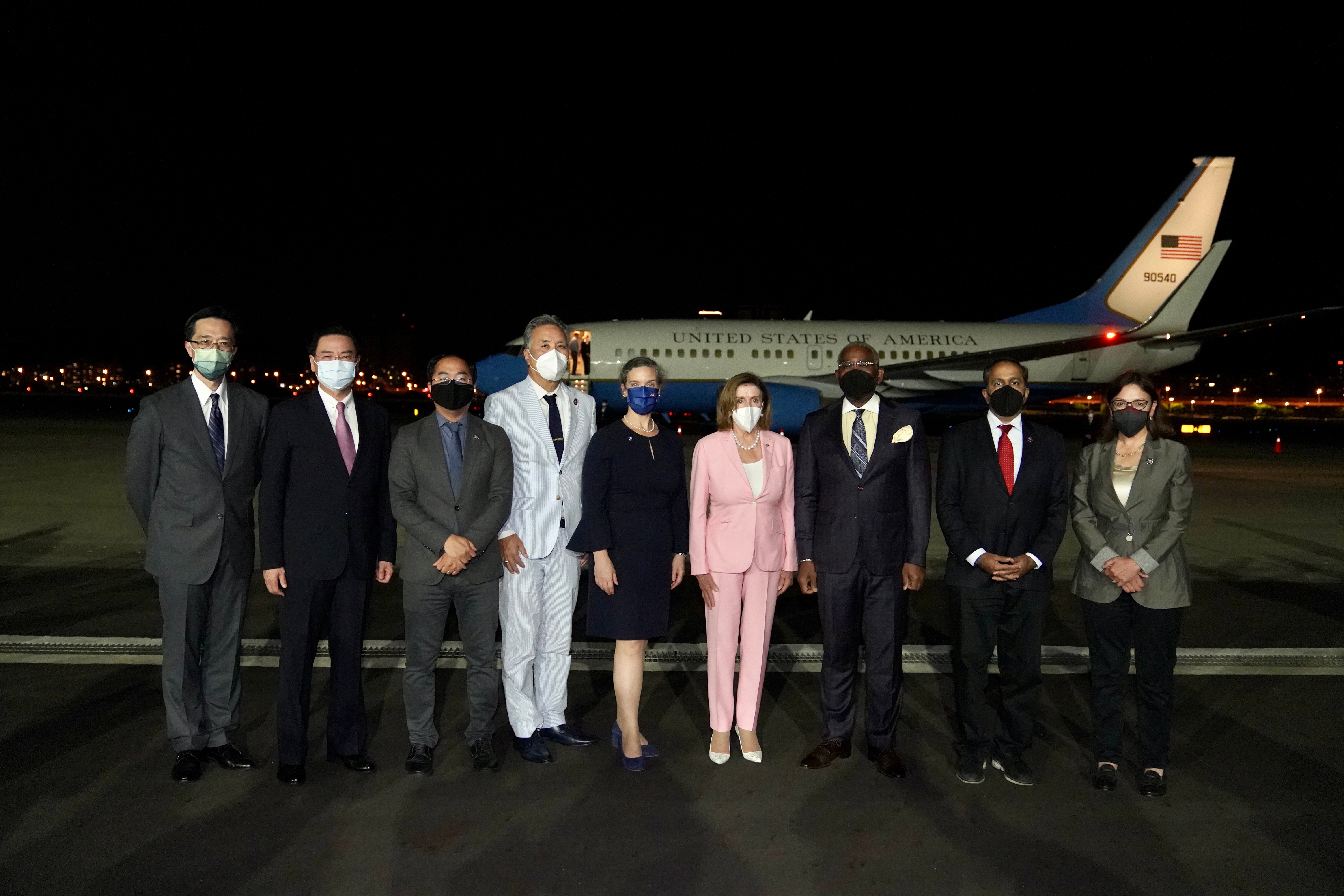Why is House speaker Nancy Pelosi, not president Joe Biden, visiting Taiwan?
Taiwan hasn’t seen a US president since Eisenhower, as Andrew Feinberg explains


When House speaker Nancy Pelosi’s US air force jet touched down at Taiwan’s Taipei Songshan airport, she became the highest-ranking American official to visit the island since Newt Gingrich in 1997.
In a Washington Post op-ed published just after she had landed, Pelosi said the trip is meant to demonstrate the US commitment to defence of the island, which is America’s eighth-largest trading partner and a major manufacturer of the semiconductors that power everything from iPhones to the Javelin anti-tank missiles being used against Russian forces in Ukraine.
But unlike other countries in the region with deep relationships with the US, such as Vietnam, South Korea, and Japan, Taiwan has only once hosted a visit by a US president, when then president Dwight Eisenhower travelled there in June 1960.
But even though Pelosi’s visit doesn’t bestow the kind of prestige associated with a presidential trip, the Chinese government has still raised alarms about her setting foot on the island, which Beijing claims as part of its territory.
In fact, both the Taiwanese government and the Chinese government claim to be the sole country that bears the name “China”.
On 1 January 1979, the US stopped recognising the Republic of China (the name Taiwan uses to describe itself) and for the first time gave official recognition to the communist government on the Chinese mainland, the People’s Republic of China.

The PRC had governed what most Westerners consider to be “China” since 1949, when the communists, led by Mao Zedong, forced the nationalists which previously controlled mainland China to flee to Taiwan. The cross-strait feud continues today despite decades of threats by the PRC to forcibly retake Taiwan.
But one effect of the US recognition of the PRC was that members of Congress passed the Taiwan Relations Act, which affords the Taiwanese government benefits of US recognition without actually recognising it.
The US continues to sell military hardware to Taiwan and it insists that the island’s de facto independence must be respected and not changed by force, but has also maintained a posture of strategic ambiguity on the question of whether it would come to Taipei’s defence if Beijing mounts an invasion.
Pelosi herself has been a critic of Beijing for decades. More than 30 years ago, she angered China's government by showing up in Tiananmen Square and unfurling a banner honoring dissidents killed in the 1989 protests.
In 2015, she took a group of House Democrats to Tibet, the first such visit since widespread unrest in 2008. Pelosi has regularly spoken out about human rights issues in Tibet and has met the Dalai Lama, whom Beijing reviles as a violent separatist.
Whoever has occupied the White House, Congress has long taken a harder line on Taiwan, and key Republicans have supported Pelosi's trip – even after Biden cast doubt publicly on the wisdom of the visit last month.
Join our commenting forum
Join thought-provoking conversations, follow other Independent readers and see their replies
Comments
Bookmark popover
Removed from bookmarks